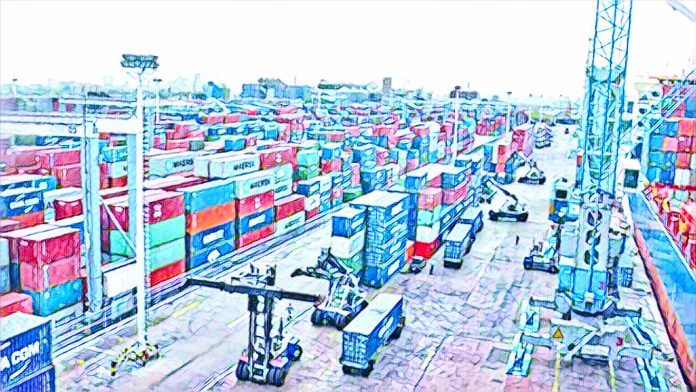Nigeria’s first deep seaport, Lekki Port, which started operations in April 2023, is struggling to attract more customers amid the country’s economic woes. The port in the Lekki Free Zone in Lagos State is designed to handle large vessels and containers that cannot berth at the ports in Apapa and Tin-Can Island.
However, the port has only received 36 vessels in the last six months, bringing in 18,198 twenty-foot equivalent units (TEUs) of containers, according to statistics obtained by BusinessDay. Of these, 18 vessels were carrying transshipment containers destined for other West African countries as part of the Nigerian Ports Authority’s (NPA) vision to make Lekki Port a regional hub.
The low volume of containers coming to Lekki Port reflects the economic downturn in Nigeria, which has been hit by naira devaluation, foreign exchange scarcity, high inflation, and low consumer demand. These factors have reduced the purchasing power of importers and consumers and the competitiveness of exporters.
A source close to the port told BusinessDay that Lekki Port is a new product, and the managers are aggressively marketing to woo more customers. He said the NPA also promotes the port to Nigerian importers and neighboring countries. He blamed the country’s economic hardship for Nigeria’s low import volume, which he said is not peculiar to Lekki Port.
The source also said that most containers for the Nigerian market are moved via barges through the waterways to avoid clogging the road. He said that truckers can only access the port if they have an appointment through an automated vehicle booking system. He said this system ensures orderliness and efficiency in truck movement and eliminates the chaotic traffic associated with Apapa and Tin-Can Ports.
Lekki Port’s chief commercial officer, Kehinde Olubi-Neye, told journalists in Lagos recently that the port is doing everything possible to ensure ease of cargo movement. He said the port also moves containers using barges to the Ikorodu area of Lagos. He said Lekki Port is actively discussing deploying a comprehensive call-up system for the Lekki area with the Lagos State Ministry of Transport and other stakeholders.
Lekki Port’s chief operating officer, Laurence Smith, said the port has a 150-capacity truck park that prevents indiscriminate truck parking on the access roads. He said Lekki Port operates a vehicle booking system widely used globally at all major container terminals.
Lekki Port is expected to boost Nigeria’s trade capacity and create thousands of jobs. It is also expected to complement other mega projects in the Lekki area, such as Dangote Refinery, Dangote Free Zone, and Pinnacle Oil and Gas. The port has a quay length of 1.5 kilometers and a depth of 16.5 meters. It can accommodate vessels with a capacity of up to 18,000 TEUs.
Despite the economic challenges, Lekki Port remains optimistic about its future prospects. It hopes to leverage its strategic location, modern facilities, and efficient operations to attract customers and increase its market share. It also hopes to benefit from the recovery of the Nigerian economy and the implementation of the African Continental Free Trade Area (AfCFTA).
Source: BusinessDay



